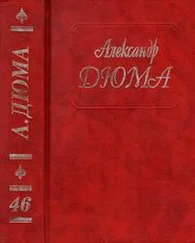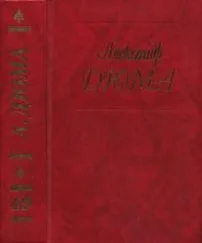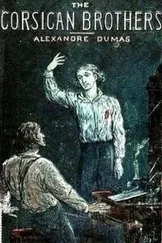Александр Дюма - The Conspirators
Здесь есть возможность читать онлайн «Александр Дюма - The Conspirators» весь текст электронной книги совершенно бесплатно (целиком полную версию без сокращений). В некоторых случаях можно слушать аудио, скачать через торрент в формате fb2 и присутствует краткое содержание. Год выпуска: 2014, Издательство: epubBooks Classics, Жанр: Историческая проза, на английском языке. Описание произведения, (предисловие) а так же отзывы посетителей доступны на портале библиотеки ЛибКат.
- Название:The Conspirators
- Автор:
- Издательство:epubBooks Classics
- Жанр:
- Год:2014
- ISBN:нет данных
- Рейтинг книги:3 / 5. Голосов: 1
-
Избранное:Добавить в избранное
- Отзывы:
-
Ваша оценка:
- 60
- 1
- 2
- 3
- 4
- 5
The Conspirators: краткое содержание, описание и аннотация
Предлагаем к чтению аннотацию, описание, краткое содержание или предисловие (зависит от того, что написал сам автор книги «The Conspirators»). Если вы не нашли необходимую информацию о книге — напишите в комментариях, мы постараемся отыскать её.
The Conspirators — читать онлайн бесплатно полную книгу (весь текст) целиком
Ниже представлен текст книги, разбитый по страницам. Система сохранения места последней прочитанной страницы, позволяет с удобством читать онлайн бесплатно книгу «The Conspirators», без необходимости каждый раз заново искать на чём Вы остановились. Поставьте закладку, и сможете в любой момент перейти на страницу, на которой закончили чтение.
Интервал:
Закладка:
Scarcely was the door closed, when Buvat darted toward the little table, and, without even waiting to dip one into the other, ate the bread and drank the coffee; then, a little comforted by that repast, insufficient as it was, began to look at things in a less gloomy point of view.
In truth, Buvat was not wanting in a certain kind of good sense, and, as he had passed the preceding evening and night, and entered on the present morning, without interference, he began to understand that, though from some political motive they had deprived him of his liberty, they were far from wishing to shorten his days, and surrounded him, on the contrary, with cares, of which he had never before been the object. He had seen that the dinner of the day before was better than his ordinary dinner—that the bed was softer than his ordinary bed—that the coffee he had just drunk possessed an aroma which the mixture of chicory took away from his, and he could not conceal from himself that the elastic couches and stuffed chairs which he had sat upon for the last twenty–four hours were much preferable to the hair sofa and cane chairs of his own establishment. The only thing, then, which remained to trouble him, was the uneasiness which Bathilde would feel at his not returning. He had for an instant the idea—not daring to renew the request which he had made the day before, to have news of him sent to his ward—of imitating the man with the iron mask, who had thrown a silver plate from the window of his prison on to the shore, by throwing a letter from his balcony into the courtyard of the Palais Royal; but he knew what a fatal result this infraction of the will of Monsieur de Saint–Mars had had for the unfortunate prisoner, so that he feared, by such an action, to increase the rigors of his captivity, which at present seemed to him tolerable.
The result of all these reflections was, that Buvat passed the morning in a much less agitated manner than he had the evening and the night; moreover, his hunger—appeased by the roll and the coffee—only existed in the form of that appetite which is an enjoyment when one is sure of a good dinner. Add to all this the particularly cheerful look–out which the prisoner had from his window, and it will be easily understood that mid–day arrived without too many sorrows, or too much ennui.
Exactly at one o'clock the door opened, and the table reappeared ready laid, and brought, like the day before and that morning, by the two valets. But this time, it was neither Monsieur Bourguignon nor Monsieur Comtois who sat down to it. Buvat declared himself perfectly reassured concerning the intentions of his august host; he thanked Messieurs Comtois and Bourguignon for the devotion of which each in turn had given him a proof, and begged them to wait upon him in their turn. The two servants made wry faces, but obeyed. It will be understood that the happy disposition in which Buvat now was became more blissful under the influence of a good dinner. Buvat ate all the eatables, drank all the drinkables, and at last, after having sipped his coffee—a luxury which he usually only allowed himself on Sundays—and having capped the Arabian nectar with a glass of Madame Anfoux' liquor, was, it must be confessed, in a state bordering upon ecstasy.
That evening the supper was equally successful; but as Buvat had abandoned himself at dinner rather freely to the consumption of Chambertin and Sillery, about eight o'clock in the evening he found himself in a state of glorification impossible to describe. The consequence was, that when the valet–de–chambre entered, instead of finding him like the evening before, with his head under the bed, he found Buvat seated on a comfortable sofa, his feet on the hobs, his head leaning back, his eyes winking, and singing between his teeth, with an expression of infinite tenderness:
"Then let me go,
And let me play,
Beneath the hazel–tree."
Which, as may be seen, was a great improvement on the state of the worthy writer twenty–four hours before. Moreover, when the valet–de–chambre offered to help him to undress, Buvat, who found a slight difficulty in expressing his thoughts, contented himself with smiling in sign of approbation; then extended his arms to have his coat taken off, then his legs to have his slippers removed; but, in spite of his state of exaltation, it is only just to Buvat to say, that it was only when he found himself alone that he laid aside the rest of his garments.
This time, contrary to what he had done the day before, he stretched himself out luxuriously in his bed, and fell asleep in five minutes, and dreamed that he was the Grand Turk.
He awoke as fresh as a rose, having only one trouble—the uneasiness that Bathilde must experience, but otherwise perfectly happy.
It may easily be imagined that the breakfast did not lessen his good spirits; on the contrary, being informed that he might write to Monsieur the Archbishop of Cambray, he asked for paper and ink, which were brought him, took from his pocket his penknife, which never left him, cut his pen with the greatest care, and commenced, in his finest writing, a most touching request, that if his captivity was to last, Bathilde might be sent for, or, at least, that she might be informed, that, except his liberty, he was in want of nothing, thanks to the kindness of the prime minister.
This request, to the caligraphy of which Buvat had devoted no little care, and whose capital letters represented different plants, trees, or animals, occupied the worthy writer from breakfast till dinner. On sitting down to table he gave the note to Bourguignon, who charged himself with carrying it to the prime minister, saying that Comtois would wait during his absence. In a quarter of an hour Bourguignon returned, and informed Buvat that monseigneur had gone out, but that—in his absence—the petition had been given to the person who aided him in his public affairs, and that person had requested that Monsieur Buvat would come and see him as soon as he had finished his dinner, but hoped that monsieur would not in any degree hurry himself, since he who made the request was dining himself. In accordance with this permission Buvat took his time, feasted on the best cookery, imbibed the most generous wines, sipped his coffee, played with his glass of liquor, and then—the last operation completed—declared in a resolute tone, that he was ready to appear before the substitute of the prime minister.
The sentinel had received orders to let him pass, so Buvat, conducted by Bourguignon, passed proudly by him. For some time they followed a long corridor, then descended a staircase; at last the footman opened a door, and announced Monsieur Buvat.
Buvat found himself in a sort of laboratory, situated on the ground–floor, with a man of from forty to forty–two, who was entirely unknown to him, and who was very simply dressed, and occupied in following—at a blazing furnace—some chemical experiment, to which he appeared to attach great importance. This man, seeing Buvat, raised his head, and having looked at him curiously—
"Monsieur," said he, "are you Jean Buvat?"―"At your service, monsieur," answered Buvat, bowing.
"The request which you have just sent to the abbé is your handwriting?"
"My own, monsieur."
"You write a fine hand."
Buvat bowed, with a proudly modest smile.
"The abbé," continued the unknown, "has informed me of the services which you have rendered us."
"Monseigneur is too good," murmured Buvat, "it was not worth the trouble."
"How! not worth the trouble? Indeed, Monsieur Buvat, it was, on the contrary, well worth the trouble, and the proof is, that if you have any favor to ask from the regent, I will charge myself with the message."
"Monsieur," said Buvat, "since you are so good as to offer to interpret my sentiments to his royal highness, have the kindness to request him, when he is less pressed, if it is not too inconvenient, to pay me my arrears."
Читать дальшеИнтервал:
Закладка:
Похожие книги на «The Conspirators»
Представляем Вашему вниманию похожие книги на «The Conspirators» списком для выбора. Мы отобрали схожую по названию и смыслу литературу в надежде предоставить читателям больше вариантов отыскать новые, интересные, ещё непрочитанные произведения.
Обсуждение, отзывы о книге «The Conspirators» и просто собственные мнения читателей. Оставьте ваши комментарии, напишите, что Вы думаете о произведении, его смысле или главных героях. Укажите что конкретно понравилось, а что нет, и почему Вы так считаете.












